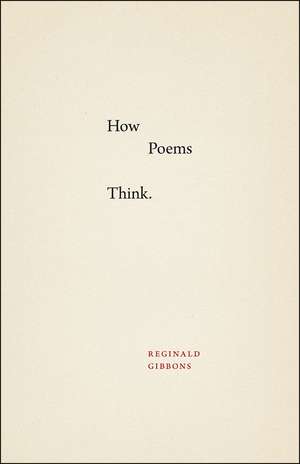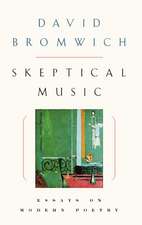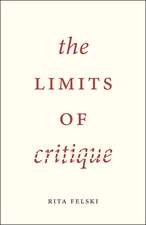How Poems Think
Autor Reginald Gibbonsen Limba Engleză Paperback – 8 oct 2015
To write or read a poem is often to think in distinctively poetic ways—guided by metaphors, sound, rhythms, associative movement, and more. Poetry’s stance toward language creates a particular intelligence of thought and feeling, a compressed articulation that expands inner experience, imagining with words what cannot always be imagined without them. Through translation, poetry has diversified poetic traditions, and some of poetry’s ways of thinking begin in the ancient world and remain potent even now. In How Poems Think, Reginald Gibbons presents a rich gallery of poetic inventiveness and continuity drawn from a wide range of poets—Sappho, Pindar, Shakespeare, Keats, William Carlos Williams, Marina Tsvetaeva, Gwendolyn Brooks, and many others. Gibbons explores poetic temperament, rhyme, metonymy, etymology, and other elements of poetry as modes of thinking and feeling. In celebration and homage, Gibbons attunes us to the possibilities of poetic thinking.
Preț: 227.48 lei
Nou
Puncte Express: 341
Preț estimativ în valută:
43.53€ • 45.45$ • 36.03£
43.53€ • 45.45$ • 36.03£
Carte tipărită la comandă
Livrare economică 05-19 aprilie
Preluare comenzi: 021 569.72.76
Specificații
ISBN-13: 9780226278001
ISBN-10: 022627800X
Pagini: 208
Dimensiuni: 140 x 216 x 13 mm
Greutate: 0.32 kg
Ediția:1
Editura: University of Chicago Press
Colecția University of Chicago Press
ISBN-10: 022627800X
Pagini: 208
Dimensiuni: 140 x 216 x 13 mm
Greutate: 0.32 kg
Ediția:1
Editura: University of Chicago Press
Colecția University of Chicago Press
Notă biografică
Reginald Gibbons is the Frances Hooper Professor of Arts and Humanities at Northwestern University. His most recent poetry collections are Creatures of a Day, a finalist for the National Book Award; and Slow Trains Overhead: Chicago Poems and Stories.
Cuprins
Introduction: How Poems Think
1 This Working against the Grain
2 Fortunately, the Marks on the Page Are Alien
3 On Rhyme
4 On Apophatic Poetics (I): “Teach Me That Nothing”
5 On Apophatic Poetics (II): Varieties of Absence
6 The Curious Persistence: Techne
7 Simultaneities: The Bow, the Lyre, the Loom
8 Onyx-Eyed Odalisques
9 “Had I a Hundred Mouths, a Hundred Tongues”
Afterword: A Demonstration
Acknowledgments
References
Index
1 This Working against the Grain
2 Fortunately, the Marks on the Page Are Alien
3 On Rhyme
4 On Apophatic Poetics (I): “Teach Me That Nothing”
5 On Apophatic Poetics (II): Varieties of Absence
6 The Curious Persistence: Techne
7 Simultaneities: The Bow, the Lyre, the Loom
8 Onyx-Eyed Odalisques
9 “Had I a Hundred Mouths, a Hundred Tongues”
Afterword: A Demonstration
Acknowledgments
References
Index
Recenzii
“Insightful. . . . [Gibbons] is brilliant on the role of allusion and etymology in poetry; his observations on metrics are lively rather than scholastic; and his choices of examples are brilliant. This volume will enrich the experience of poetry for readers and writers of the art. . . . Highly recommended.”
"This is a writers’ book—a must for poets. Poet-critics get at the meaning behind literary forms, and Reginald Gibbons does just that. He analyzes leaps of thought urged by rhymes, metaphors, and lexical choices. Chapters on the translation of Russian and of ancient Greek poetry are dazzling. This enormously readable book is part memoir, part report, part essay—and always conjectural, reaching forward."
"From ancient times to the present, poetry has created gods, and gods in turn have sustained poetry. Ranging from Homer, Pindar, and Sappho through French Symbolism and modern Russian to American poetry of our day, Gibbons has composed a hymn of praise to the spell-casting powers of patterned language. This erudite study mingles mysticism, philology, psychoanalysis, and mischief: it should provoke the liveliest arguments around."
“Demands attention to technique across the ages and, crucially, across languages.”
“Rich, conversational and enjoyable. . . . An insightful, sometimes moving reflection on poetry’s potential capacities.”
“A reflective and sophisticated account. . . . [Gibbons’s] comparative approach . . . is highly astute to the different resources and the different resistances offered by different languages.”
“I’m fascinated by [Gibbons’s] discussion of the metaphysics of languages and the ways in which English, with its massive and particularizing vocabulary, enables different modes of thinking and feeling than, say, the Platonic idealism expressed by French. . . . Gibbons’s book is a bright star in the firmament of my current reading.”
“There are so many things to admire in this book: its sound analyses, its wisdom about art’s relation to the psyche, its pioneering work in making other poetic traditions comprehensible to us. But above all else, it is timely. Contemporary ‘accessible’ poetry is impoverished by its ignorance of the dimensions Gibbons explores. Contemporary experimental poetry is aware of them, but, shaped by postmodernist theory, it ignores their roots in the emotions and the unconscious. Poets of whatever school, as well as all who are interested in poetics, will find their horizons expanded by reading this book.”
“Poking into cobwebby corners, weaving narrative into discourse, using assemblage, How Poems Think is a trove. I read it with a pencil — until I saw that underlining everything was the same as underlining nothing.”
"There are important considerations of rhyme in Russian poetry, discussions of classical Greek poetry, and there are brilliant moments of incisive commentary."















